
Project Speckled.
Project Speckled, focusses on repurposing eggshell waste as a way to address a range of social and environmental issues such as food waste, overconsumption, and resource scarcity. It centres around using discarded eggshell waste from consumer households as a sustainable resource. Eggshell waste is collected, dried, and transformed into a fine powder which is then blended with biodegradable binders to create the material paste. This material is used to craft circular homeware products, like temporary holders, to reduce waste and encourage more responsible resource consumption. Furthermore, this project is rooted in material research and experimentation, exploring the visual aesthetics, colours, textures, and future possibilities of the eggshell material. Rather than focusing on product outcome, the project aims to help advance the research development of this innovative material and proposes prototypes of potential product forms.
Impact & Sustainability
Impact & Sustainability
Speckled Homewares Collection.
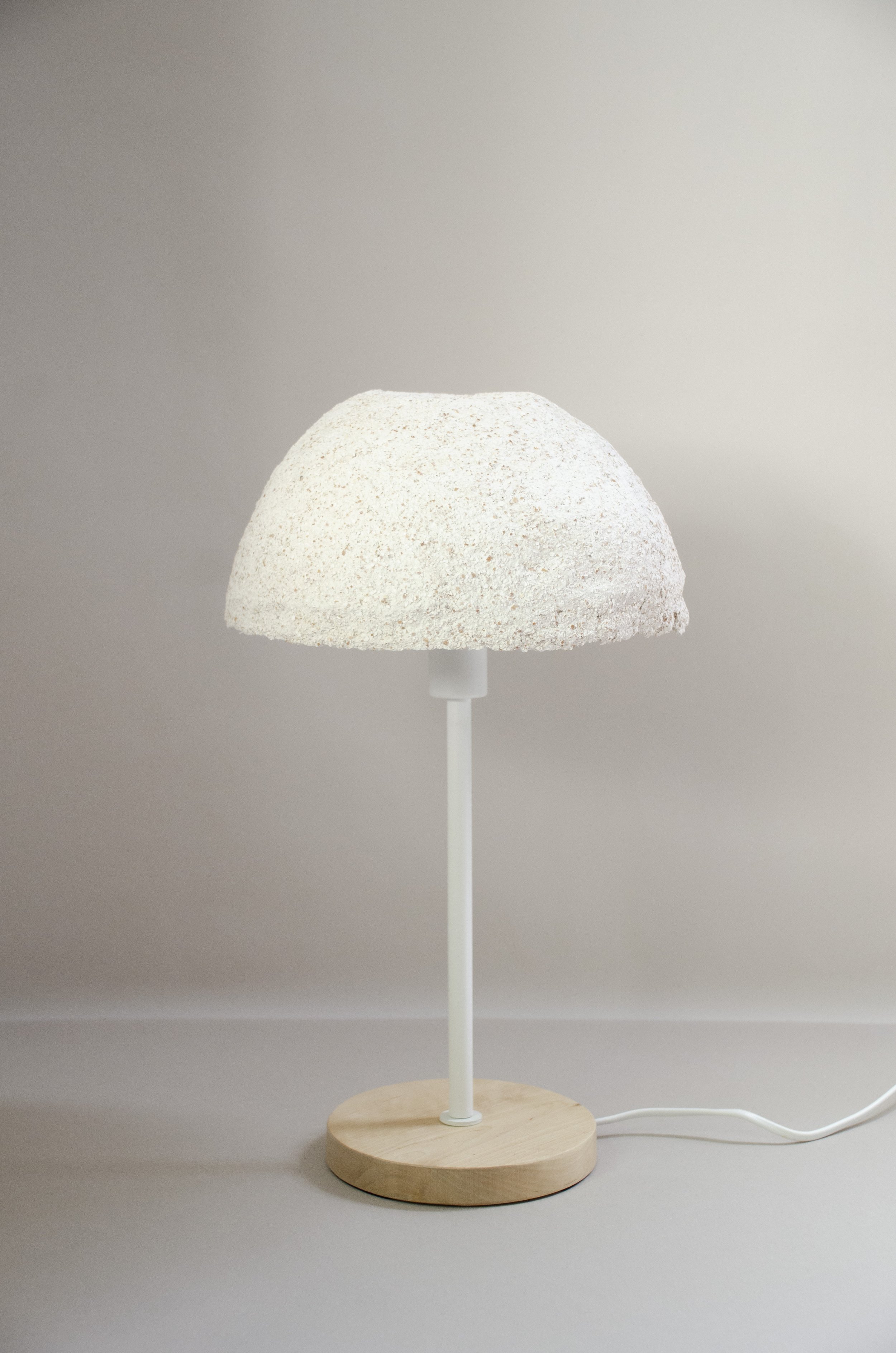



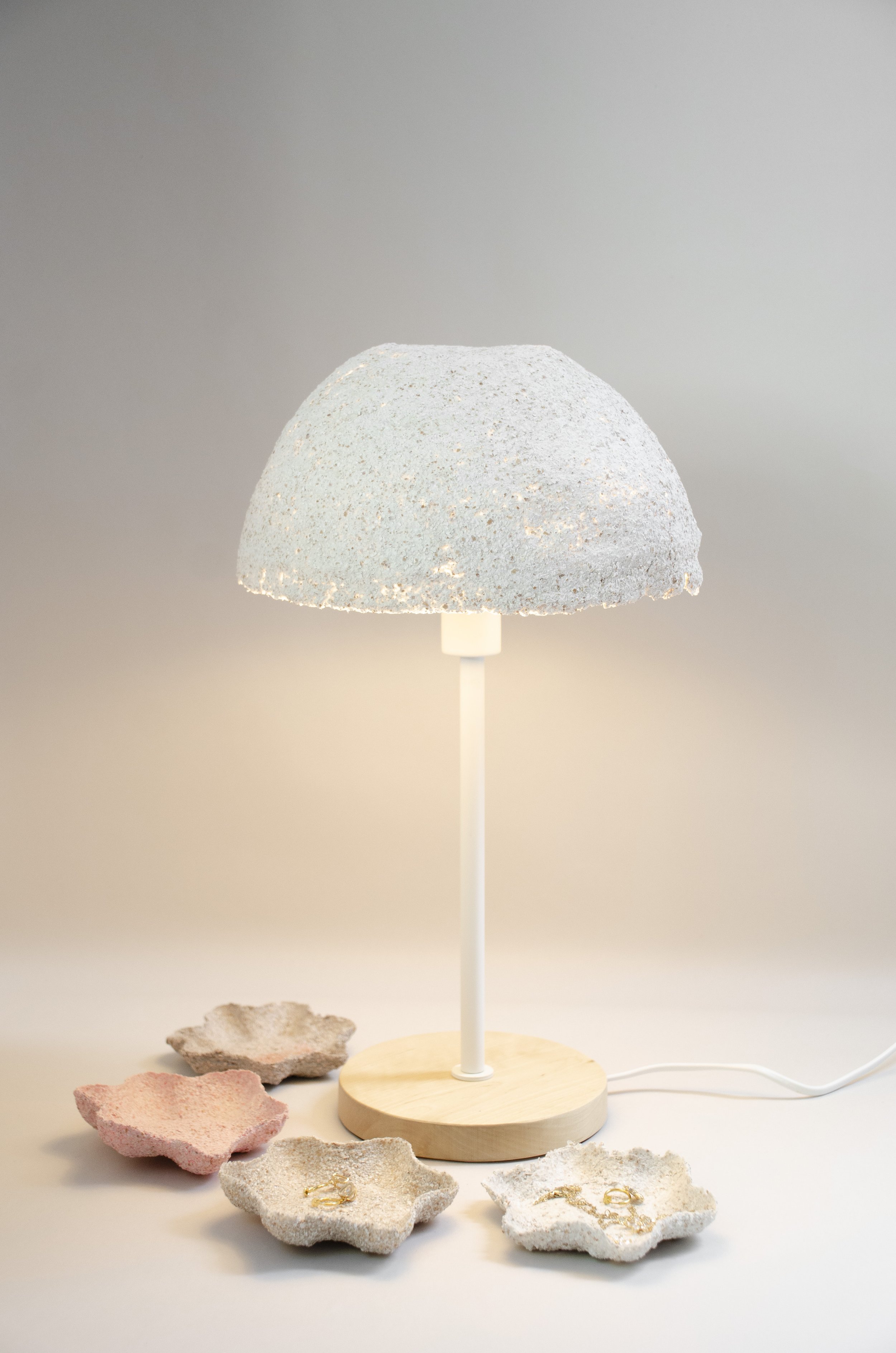
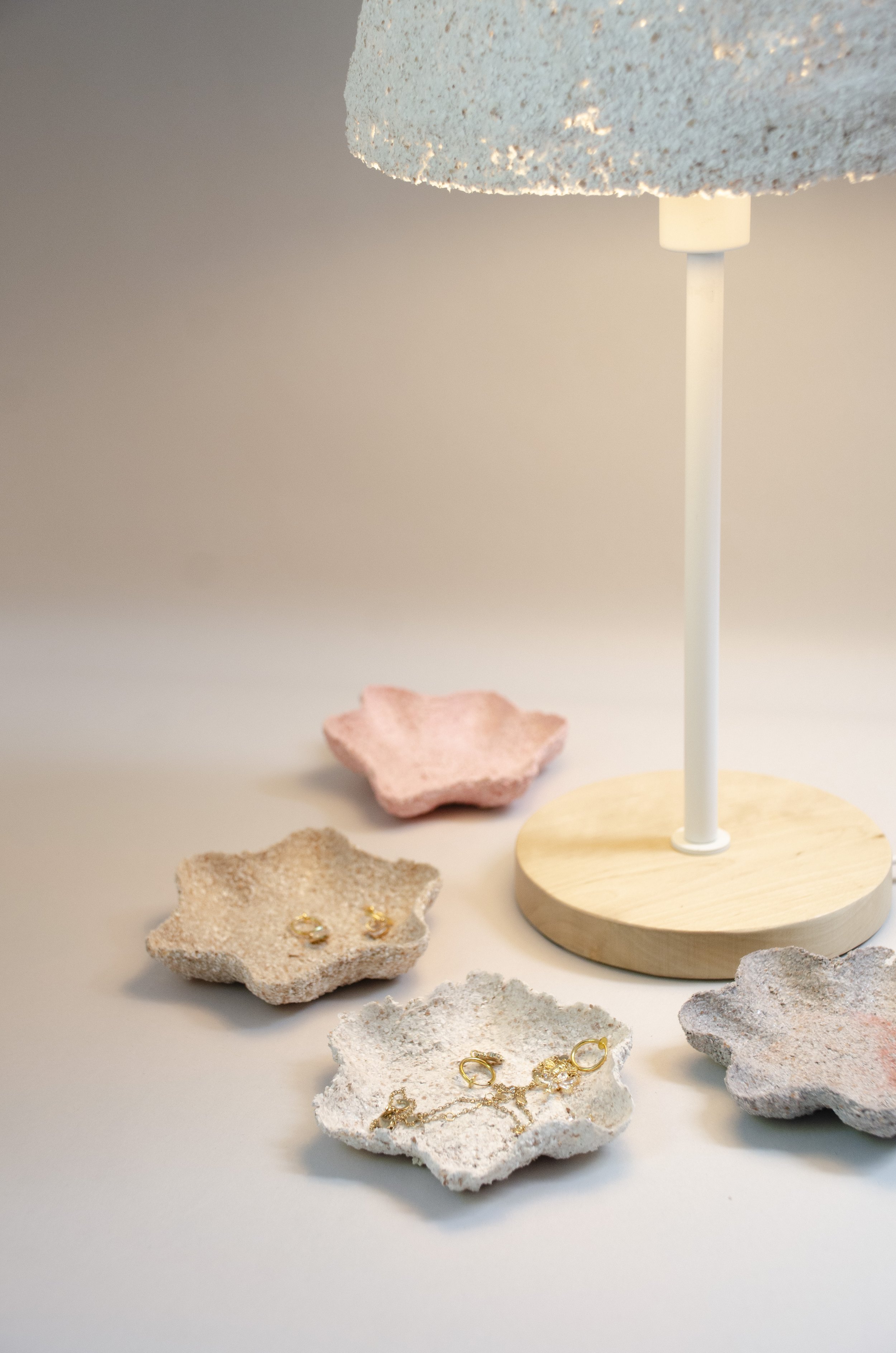

Material Composition.
The eggshell material is made of non toxic materials to ensure it can be returned back to earth. It combines crushed up discarded eggshell waste with environmentally friendly binders such as Xanthan Gum and Sodium Alginate to form an aggregate mixture. This mix is then added into water, mixed well into a wet paste consistency and used to create material forms with the help of moulds. Coffee grounds and food dye can be added to create coloured material.
By collecting discarded eggshells from homes, this material up-cycles eggshell waste, providing it with another meaningful stage in its life cycle before it is ultimately returned to the natural environment. The eggshell material is free from harmful chemicals. It is intentionally designed to be temporary, as it readily dissolves in water, breaking down into a solution that can be used as soil or plant fertiliser. Through its material choices and physical form, the material’s goal is to create awareness about issues around food waste and resource scarcity. It also aims to create sustainable consumption behaviours.
Sustainability.
Circularity.
Stage 1: Collecting discarded eggshell waste from households and industry and giving the raw material a second life instead of going straight to landfill. Stage 2: Using bio-binders that are nontoxic, biodegradable and safe for the environment. Reducing amount of energy used to dry the material.
Stage 3: Aim to minimise carbon footprint when it comes to transportation. Simple forms can be stacked together.
Stage 4: Products are designed to be only for temporary use in dry environments such as decorative homewares. The natural material serves to promote awareness about sustainability issues around global food waste issues and resource scarcity.
Stage 5: Once the temporary product is no longer purposeful, it can return to earth without harm. Dissolve into a solution in water for plants or directly crumble the product into the garden where it can naturally dissolve into a fertiliser solution for the soil and plants.
The process begins with the collection of discarded eggshells, diverting them from traditional waste disposal. These eggshells are then crushed into a fine powder, providing a valuable raw material. A mixture of aggregate and binder powders is prepared, and water is readied for the process. These components are then combined to create a paste mix, applied to moulds in a thick layer and air dried. Once fully dried, the resulting products are suitable for use in dry environments, serving as temporary solutions in various applications. When the temporary products have fulfilled their purpose, they can be dissolved in water, eventually biodegrade and return to the earth in an environmentally friendly manner.
Making Process.

Natural Samples
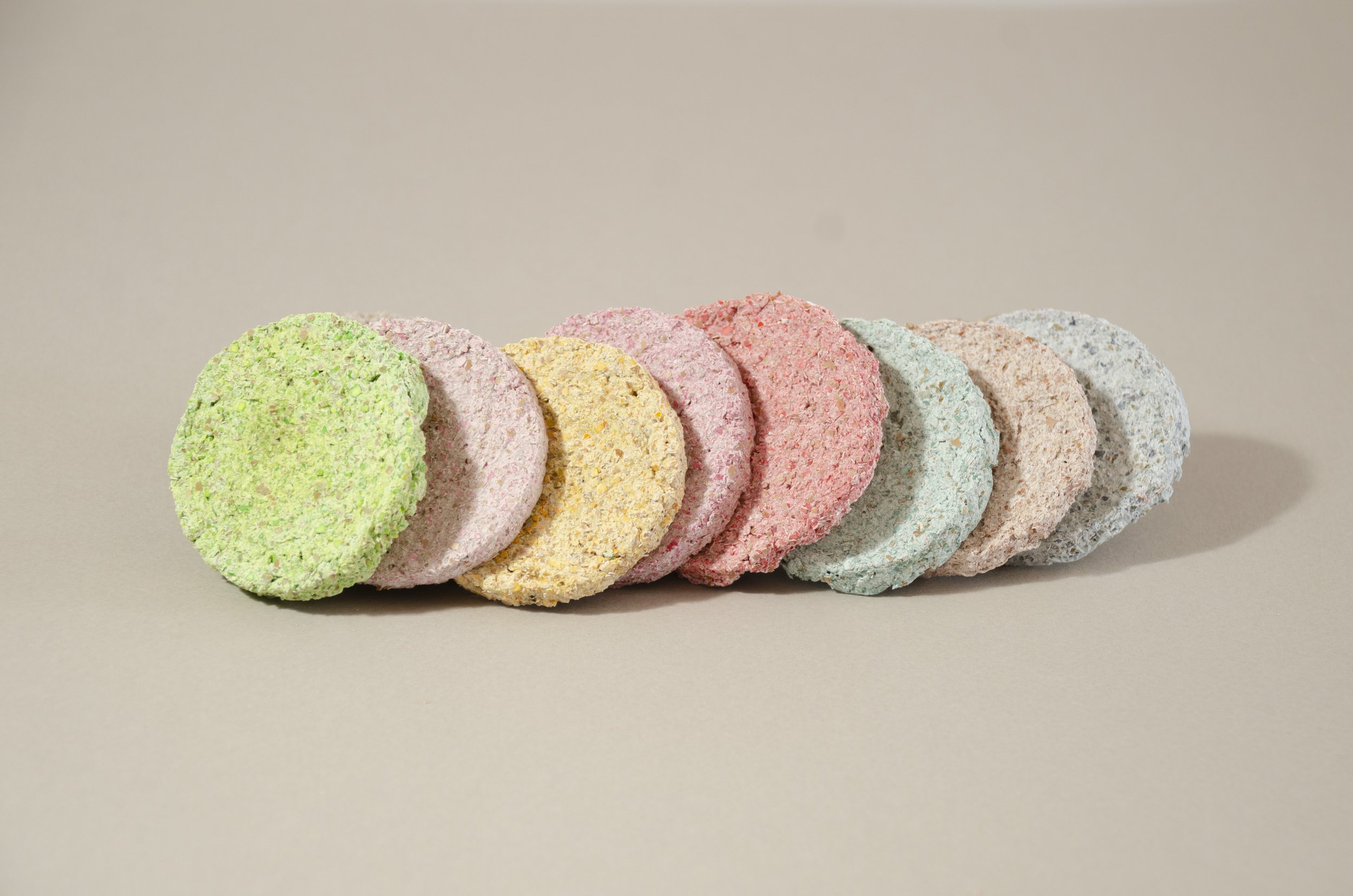
Colour Samples made from food dye

All Samples
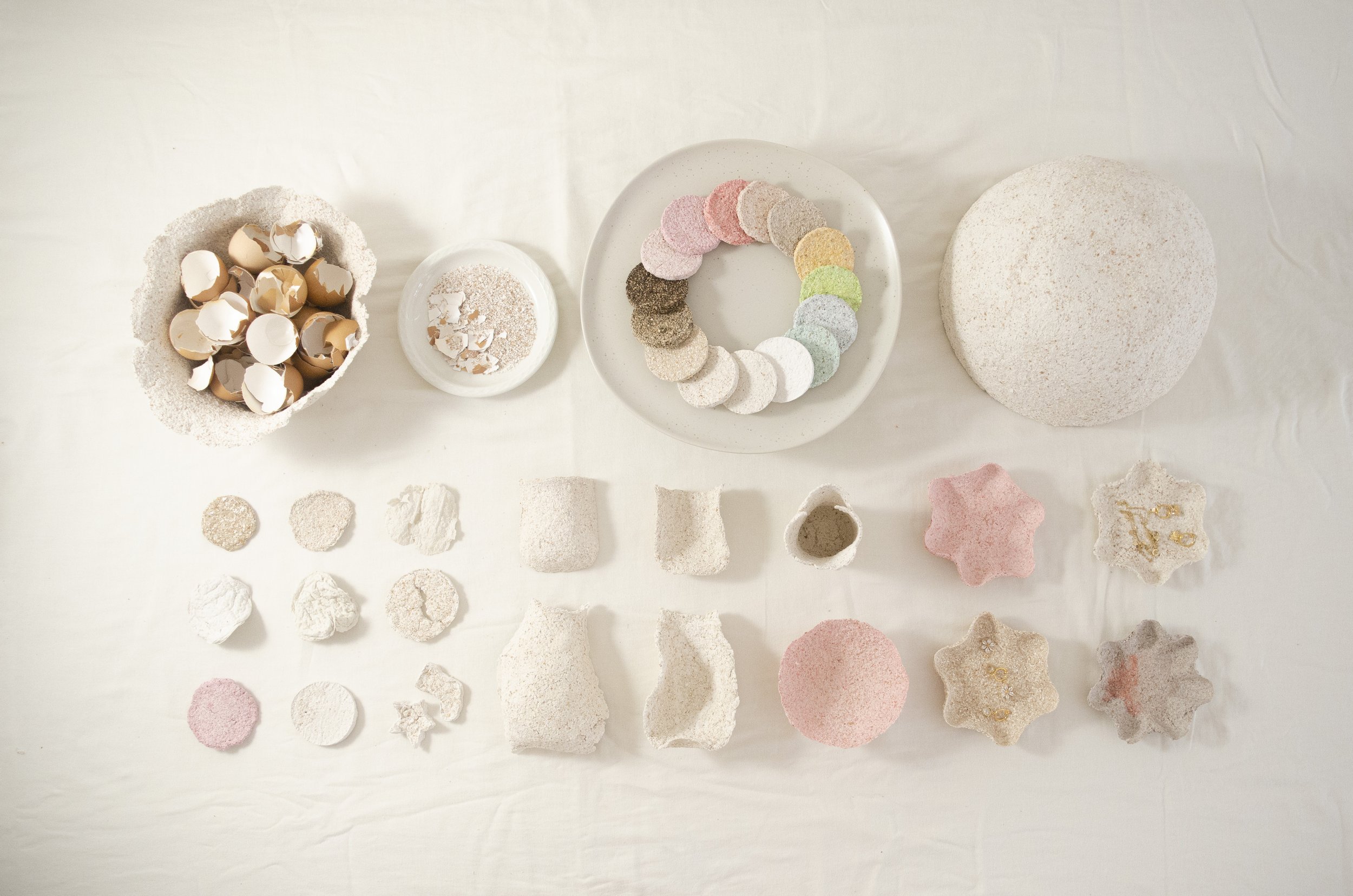
All Test Samples and Forms
Monash Art, Design and Architecture Graduate Exhibition 2023
Click below to view ‘Speckled Homewares’ featured on the MADA NOW Website.
2023
Graduate Project
Project Length: 12 Weeks
Project Theme: Impact and Sustainability



